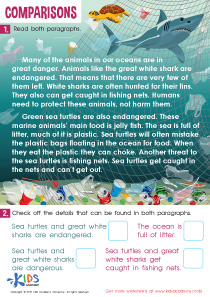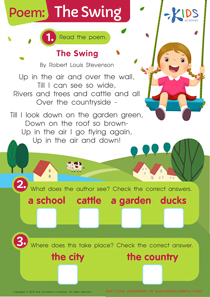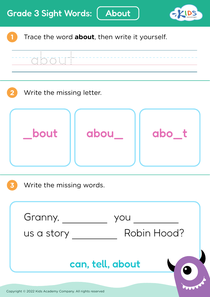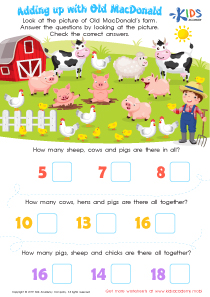Contextual understanding Grade 3 Reading Worksheets
3 filtered results
-
From - To
Unlock your child's reading potential with our Contextual Understanding Grade 3 Reading Worksheets! These expertly designed resources help third graders develop essential comprehension skills by teaching them to infer meaning from context. Our engaging and interactive worksheets feature a variety of texts, from stories to informational passages, boosting both vocabulary and critical thinking abilities. As your child progresses, they'll gain confidence in tackling more complex reading materials. Perfect for home or classroom use, these worksheets are an invaluable tool for ensuring your child's reading success. Start exploring today and watch as their reading skills soar!
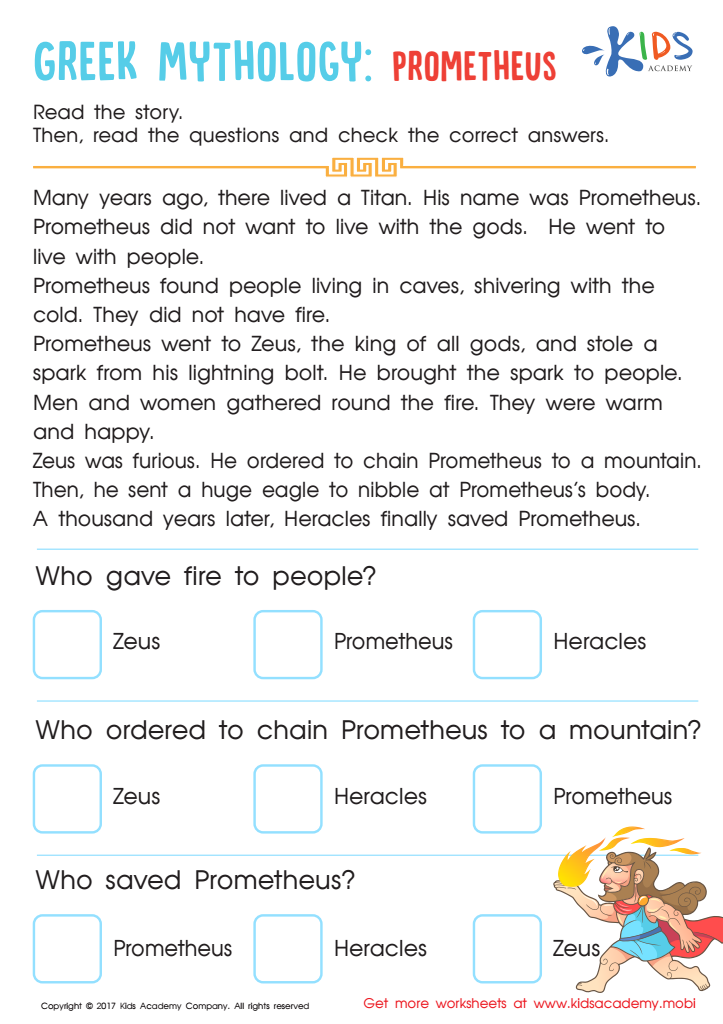

Prometheus Story Worksheet
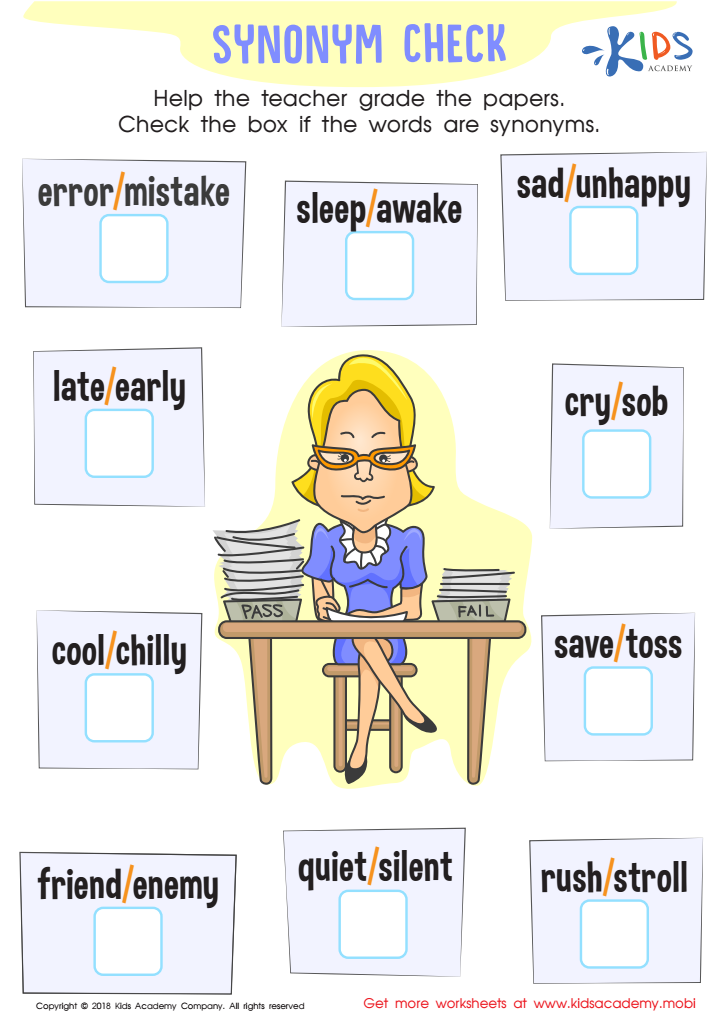

Synonym Check Worksheet
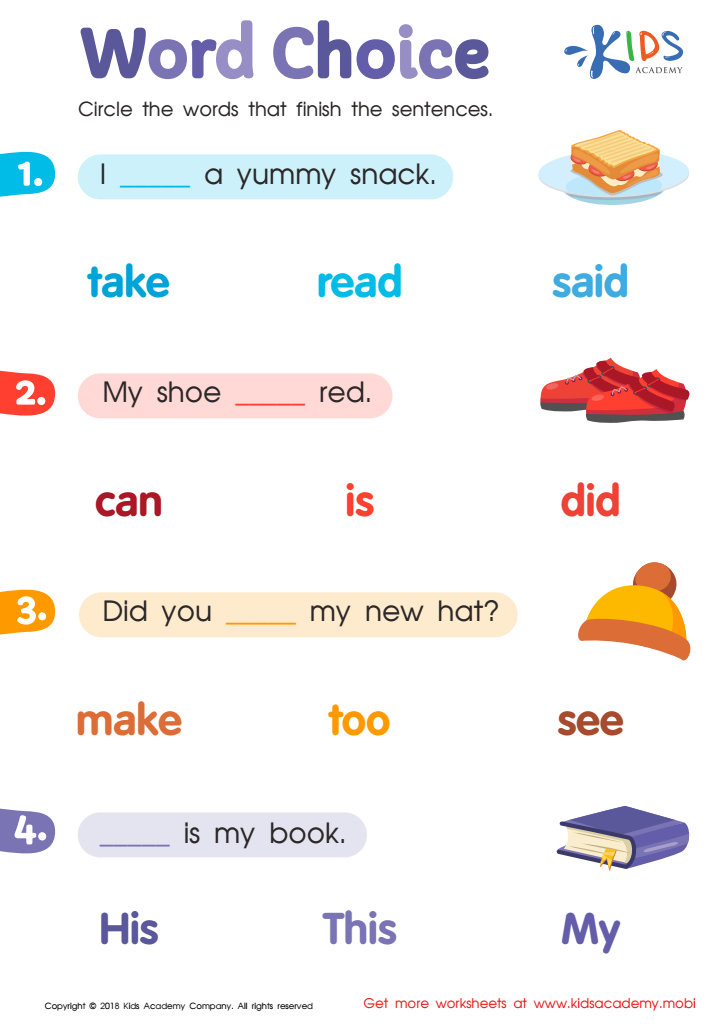

Word Choice Worksheet
Contextual understanding in Grade 3 reading is crucial for several reasons, and both parents and teachers should care deeply about fostering it. At this stage, students transition from learning to read to reading to learn, making comprehension essential for academic success and lifelong learning.
Contextual understanding helps students infer the meaning of new words and phrases by using clues from the surrounding text. This skill is vital for expanding their vocabulary organically, facilitating more advanced reading and communication capabilities. It also aids in understanding nuanced details and underlying themes, which are often central to subjects like literature, history, and science.
Moreover, contextual understanding promotes critical thinking skills. When children can interpret and analyze the text within its context, they are better equipped to draw conclusions, make connections to their own experiences, and gain a deeper appreciation of the material.
Additionally, a strong grasp of context supports overall cognitive development. It enhances memory, strengthens problem-solving abilities, and encourages a more engaged and curious approach to learning. For children’s emotional and social development, understanding context helps in comprehending social cues and empathetic communication in everyday interactions.
Parents and teachers play pivotal roles in nurturing this skill by providing diverse reading materials, asking probing questions, and encouraging discussions about the texts. Doing so lays a strong foundation for students' future academic achievements and personal growth.
 Assign to My Students
Assign to My Students











